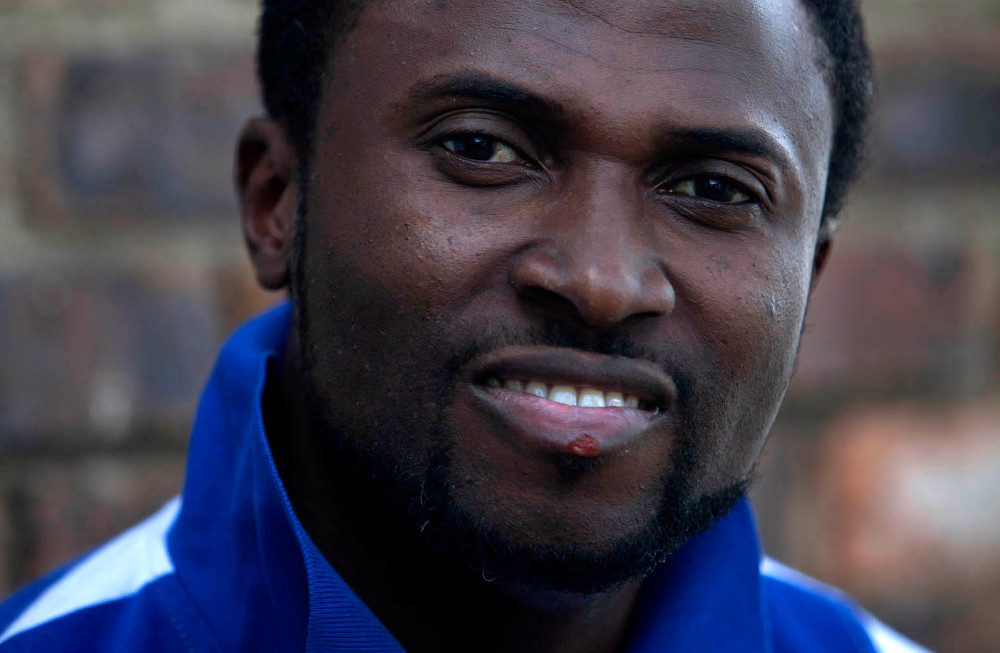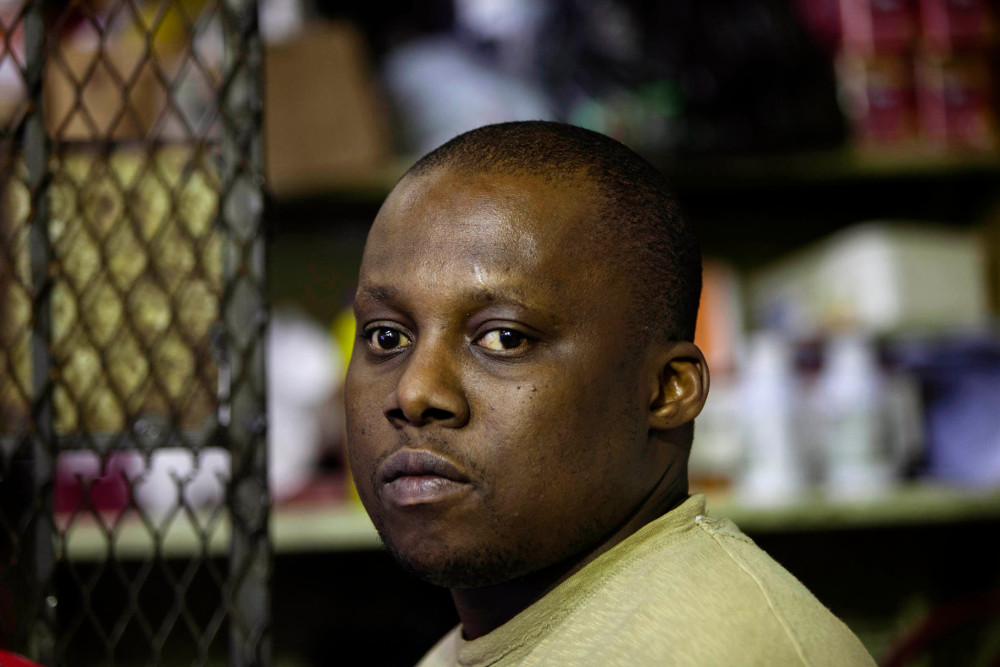Manyathela Mvelase says hostel residents often take out their frustrations on their neighbours
“Before, they would speak in their language and we would ask people who understand to tell us. This time they did not announce,” says Monday Nken, leaning his elbows on a spray-painted bin at a friend’s panel beating shop in Jeppestown, central Johannesburg. There are no tools or cars on the premises as a precaution against xenophobic attacks.
Nken, a Nigerian who has lived in South Africa since 2006, is trying to put a finger on the morphing nature of the violence against foreigners, the most recent of which has seen businesses and people attacked, mostly in parts of KwaZulu-Natal and Gauteng.
His own panel-beating business, just next door, was set alight on Tuesday evening by men allegedly from a Jeppestown hostel. The skeletal remains of seven charred cars, visible through the now paneless windows, are the only evidence of a once-thriving business.
Nken believes the latest wave of attacks was driven by hunger. He admits that he has never employed South Africans except on a per-job basis or as cleaners.
“I could train someone as an understudy, but they could be planning to steal from me because I’m a foreigner,” he says.
He lives in the inner-city suburb of Berea and says he would never live in Jeppestown, where he set up shop two and a half years ago, because “it’s clear that some people don’t want foreigners to be close to them”.
Root cause
Manyathela Mvelase, an induna at the nearby hostel, agrees with him about the root cause of the attacks – poverty. Although stopping short of condoning the violence, Mvelase says it’s often their closest neighbours who bear the brunt of “his children’s [hostel residents’] frustrations because they rub shoulders with them”.
“Have you seen the house of any Chinese person in South Africa?” he asks me rhetorically.
In Alexandra, a tall, lean man, Sonny Usoro, is walking briskly up Selborne Street to catch a taxi to Sandton. A mobile tablet juts conspicuously out of his back pocket.

Nigerian Sonny Usoro expressed an understanding of the difficulties experienced by locals. (Photos: Oupa Nkosi, M&G)
“People say Alex is dangerous but I haven’t experienced that. In fact, I feel safer in Alex than in town,” the 33-year-old Nigerian pastor from Port Harcourt says.
“Every country has its problems. People back home have been saying ‘Come back to Nigeria’ but I say, ‘Don’t you have Boko Haram in Nigeria?’ If you say a people is xenophobic then you are generalising.
“If you go to many countries in Africa, you can meet people who are xenophobic. The thing with South Africa is that everything that happens here makes it out into the world because of the country’s international platform.”
Highest immigration population
Usoro believes that South Africa probably has the highest immigrant population on the whole continent.
“I never met more than 10 Ghanaians in Nigeria but in South Africa I have met more than a thousand Nigerians,” Usoro says, which draws an incredulous reaction from a compatriot, a hairdresser working in the street, who jokingly introduces himself as “Dubai Mngomezulu”.

Nigerian Ejike Eze is a shopkeeper in Hillbrow.
Usoro continues: “Everything has a positive and negative side. There has been a lot of crime coming with foreigners but that doesn’t mean that without foreigners there wouldn’t be crime. The positive impact is that, when there are more people, there is a faster development of the economy because the majority of foreigners are owning their own businesses.”
Usoro believes that the current wave of attacks may hurt South Africa diplomatically. Whipping out his tablet, he calls up a blog entry criticising the Nigerian Union in South Africa for “overstating” the damages suffered by Nigerians in South Africa, hiking up the estimated losses from an initial R1.2-million to R4.6-million and then forwarding that list to Nigeria’s consul general in South Africa.
Inside his hair salon, Mngomezulu jokes in a Nigerian accent about being “half South African” to disbelieving laughs from his South African staff.
Referring to a comment by Usoro, about how he could always “spot Ghanaians in Port Harcourt”, the dapper Mngomezulu says the shape of his head is “not typically Nigerian”.
‘God’s own country’
His pidgin and heavy accent, however, give him away. He calls his adopted home “God’s own country”, lacking only in that its youth are not trained in trades.
“I’m finishing my house in Nigeria now from just doing hair. But people here, they want to work for Pick?n?Pay and Mr Price. The manager at Pick?n Pay or Mr Price can’t even buy a car on credit. They don’t have skills.”
In Hillbrow, or “Little Lagos” as it is nicknamed, a Nigerian shopkeeper, Ejike Eze, says that, in 2008, he remembers people running across town in a panic towards Hillbrow but he did not see a reason to close his corner shop on Claim Street.
Built like powerlifter, a look accentuated by his gym clothes, Eke says: “For people to attack others in Hillbrow, it would have to be something major, because most people living here are foreigners.
“That side [in the townships], individuals are attacking foreigners. But it’s not their fault because everyone is struggling to survive. The destruction spreads the suffering.
“People who are working and people who went to school properly don’t have time for that shit.”